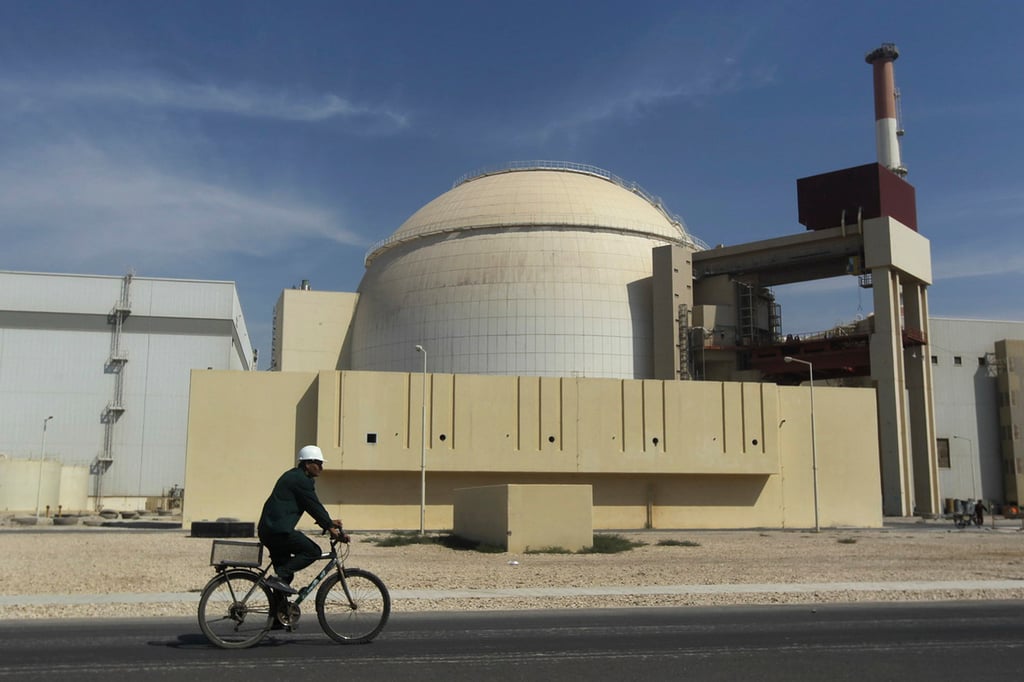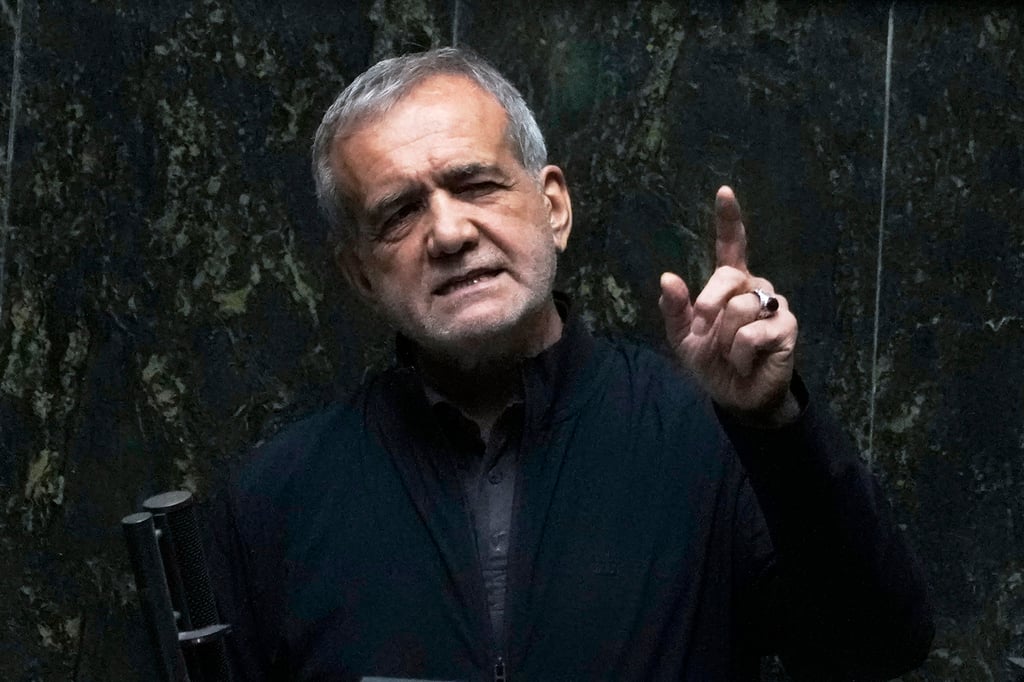Iran’s supreme leader opens door to talks with ‘enemy’ US over Tehran’s nuclear programme
“We do not have to pin our hope to the enemy. For our plans, we should not wait for approval by the enemies,” Khamenei said in a video broadcast by state television. “It is not contradictory to engage the same enemy in some places, there’s no barrier.”
Khamenei, who has final say on all state matters, also warned Pezeshkian’s Cabinet, “Do not trust the enemy.”

Khamenei, 85, has occasionally urged talks or dismissed them with Washington after then President Donald Trump unilaterally withdrew the United States from the deal in 2018.
The US State Department didn’t immediately respond to a request for comment over Khamenei’s remarks. There have been indirect talks between Iran and the US in recent years mediated by Oman and Qatar, two of the United States’ Middle East interlocutors when it comes to Iran.
Since the deal’s collapse, Iran has abandoned all limits that the deal put on its programme, and enriches uranium to up to 60 per cent purity – near weapons-grade levels of 90 per cent.
Surveillance cameras installed by the International Atomic Energy Agency have been disrupted, while Iran has barred some of the Vienna-based agency’s most experienced inspectors. Iranian officials also have increasingly threatened that they could pursue atomic weapons.
Meanwhile, tensions between Iran and Israel have hit a new high during the Israel-Gaza war in the Gaza Strip. Tehran launched an unprecedented drone-and-missile attack on Israel in April, after years of a shadow war between the two countries reached a climax with Israel’s apparent attack on an Iranian consular building in Syria that killed two Iranian generals and others.
The assassination in Tehran of Hamas leader Ismail Haniyeh also prompted Iran to threaten to retaliate against Israel.

Pezeshkian, a former lawmaker who won the presidency after a May helicopter crash killed hardline President Ebrahim Raisi, campaigned in part on a promise to re-engage the West with negotiations. Khamenei’s remarks as Iran’s paramount leader could provide him with the political cover to do so. Pezeshkian’s new foreign minister, Abbas Araghchi, was deeply involved in negotiations on the 2015 deal.
However, it’s not just Iran that’s facing a new presidency. The US will hold a presidential election on November 5, with Vice-President Kamala Harris and Trump as the leading candidates. Iran has been concerned about Trump returning to power.
While the US engaged in indirect talks with Iran under President Joe Biden, it remains unclear how that would carry over to a possible Harris administration. Harris, in a speech to the Democratic National Convention last week, said: “I will never hesitate to take whatever action is necessary to defend our forces and our interests against Iran and Iran-backed terrorists.”
Tuesday’s meeting between Khamenei and Pezeshkian’s Cabinet included an appearance by former Foreign Minister Mohammad Javad Zarif, who helped Iran reach the 2015 deal. After the meeting, Zarif said in an online message that he would continue to serve as a vice-president in Pezeshkian’s administration after earlier publicly resigning over the make-up of the Cabinet.